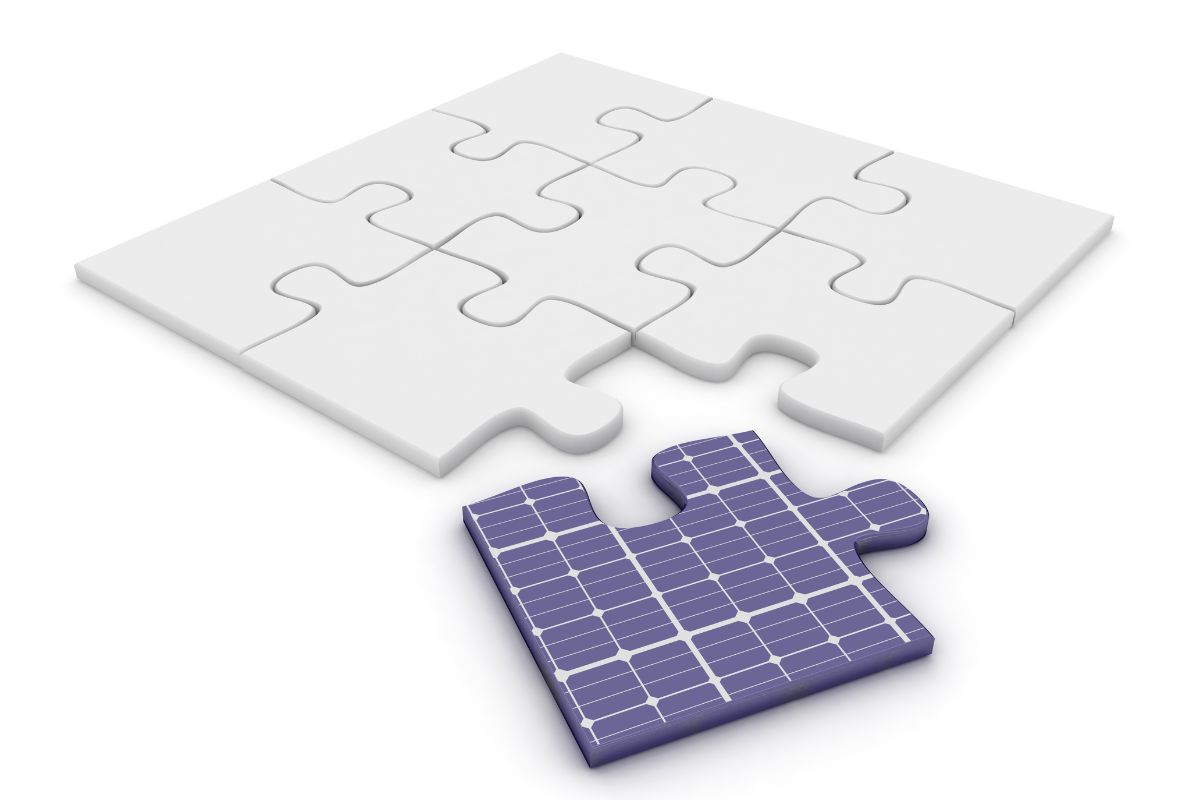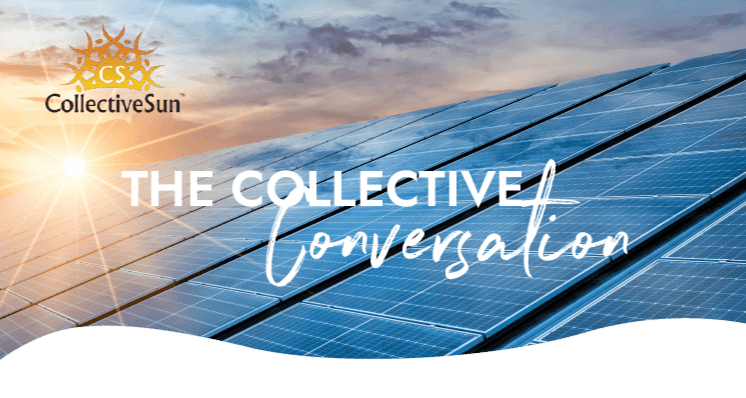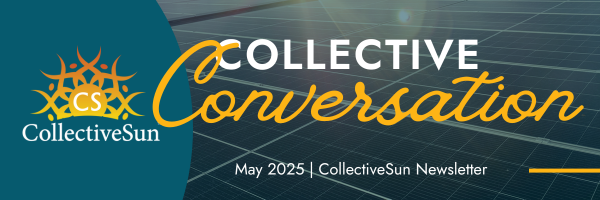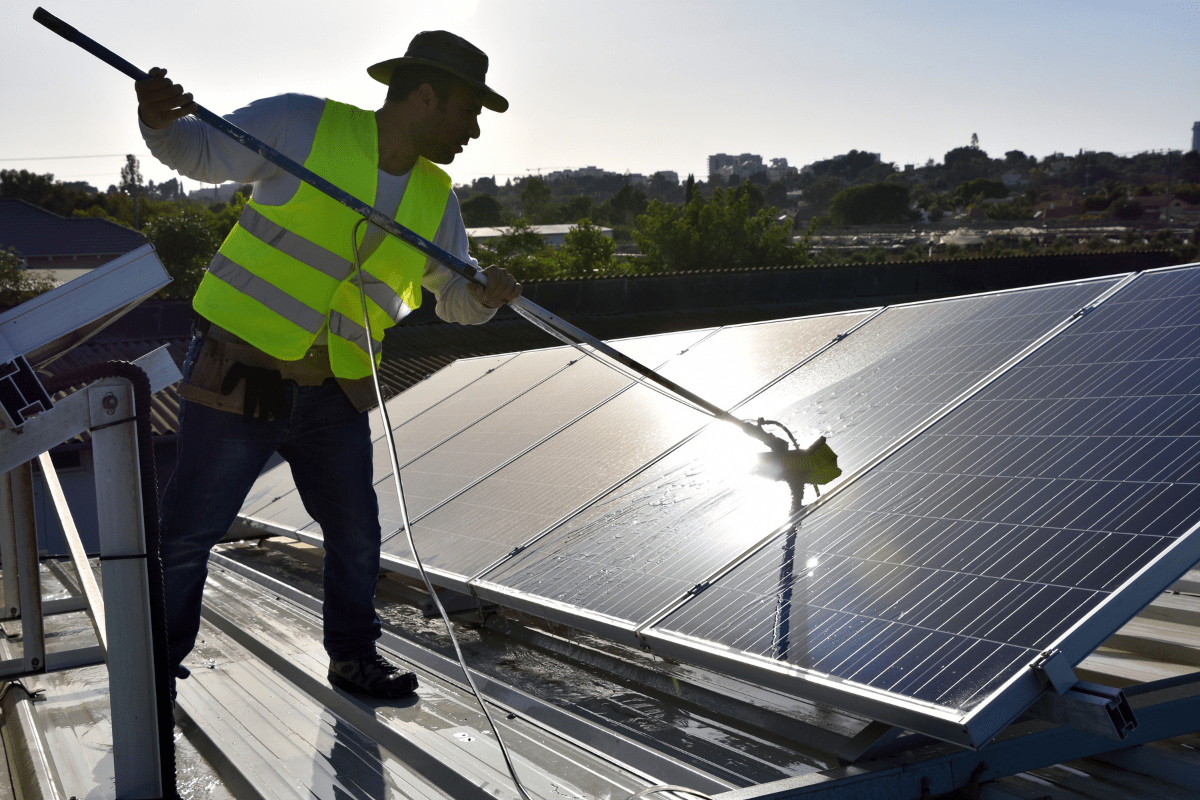|
|
|
The solar industry is full of excellent companies run by people who want to make the world a better place by accelerating our transition to renewable energy.
It’s also a rapidly growing industry with a large market still waiting to be tapped. That means there are some companies out there trying to take advantage of that opportunity — and even some that are just solar scams.
|
|
|
 |
|
To help your nonprofit avoid the scams, we’ve compiled a list of things to do when embarking on a solar project.
If this seems overwhelming, just skip to Step 4 — getting help from CollectiveSun! We can simplify your solar journey while ensuring that you avoid any solar scams.
1. Learn to spot the scams
You can’t avoid what you can’t see! Here are some red flags to look for that will help you spot solar scams.
- Claims of free solar. Just as there’s no free lunch, there’s no free solar! Any claims of free solar — or getting paid to go solar — are a major red flag. What is true is that you can lease solar or enter into a power purchase agreement or “solar subscription”— often with no money down — and start saving money on Day 1. But you’ll still make monthly payments for your solar, just as you now make monthly payments for your electric bill.
- Exact savings guarantees. When you get quotes from solar installers, they’ll estimate how much your panels will produce and how much you’ll save over your system’s lifetime. These are just estimates, as they rely on difficult-to-predict factors like future electricity prices; be wary of claims of guaranteed savings.
- Tax credit guarantees. While the 30% investment tax credit is now available for nonprofits — and can go even higher in some cases — you have to qualify for it by filing with the IRS …
|
Continue Reading Here
|
|
|
 |
|
The Solar Spotlight:
Getting Started on Your Nonprofit Solar Project
Once you understand a few solar basics, you’re ready to begin your nonprofit’s solar journey. Where do you start?
Identify your nonprofit’s decision makers
While CollectiveSun can greatly simplify the process of going solar, we can’t make decisions for your organization. You probably can’t make decisions for your nonprofit on your own, either, especially big decisions like going solar.
At some point, someone in your nonprofit will need to sign an agreement to proceed with the solar project. But the approval process should begin much earlier. You’ll need to get buy-in from your organization, ideally at all levels.
You’ll also need to identify who makes decisions about big contracts and purchases. This may include your nonprofit’s Executive Director, Chief Financial Officer and/or Treasurer, and Board of Trustees. For some houses of worship, it may even be the entire congregation.
Get support from a green team
When embarking on a big project like going solar, you can use some support. A green team can help by providing education and building enthusiasm for solar — and other sustainability initiatives, such as recycling programs. A green team can also make your work lighter, helping you …
|
|
|
|
|
|
|
Know A Nonprofit?
If your favorite nonprofit organization is exploring going solar and their mission is to provide programs & services that support communities of concern benefitting:
|
|
|
|
CollectiveSun is here to help you with your solar financing.
| Interest Rates Start at 4.99% |
| Rates Are Based On Community Impact, Not Just Credit Score |
| One Simple Payment | Term Length Up To 10 Years |
| Payment Holiday Durning Construction of System | No Prepayment Penality |
Our goal is for you to end up with a solar system that reduces your carbon footprint and is a $0 down investment with a positive cash flow from day one, so it has an immediate impact on your bottom line. That’s what we want most for the organizations that are the backbone of our communities — financial and environmental sustainability that allows you to concentrate on your mission and reach your sustainability goals.
|
|
|
|
If you’d like to learn more, schedule a meeting with Nicole here.
|
|
|
|
Navigating the world of solar financing can be daunting, but it doesn’t have to be. Our team of seasoned experts has been focused on delivering solar financing solutions for nonprofit and tax-exempt organizations across the country for over a decade. In just the last few years, we’ve proudly facilitated solar projects for over 200 nonprofits spanning 25 states.
|
|
|
 |
|
At CollectiveSun, we understand that every nonprofit is unique, and that’s why we offer a diverse range of financing options. Whether you’re considering a loan like our CollectiveSun Solar Loan designed to support your purchase of a solar system while allowing you to benefit directly from the Direct Pay Tax Rebate; exploring third-party ownership options like our CollectiveSun Solar Power Agreement (SPA); or seeking a hybrid funding model like our CollectiveSun Prepaid Solar Power Agreement (Prepaid SPA), we have the perfect solution to match your solar financing needs.
For those looking to dive deeper into how Direct Pay can benefit you, we’re excited to offer a free comprehensive course series on HeatSpring. This series covers not only Direct Pay but also the additional ITC bonus adders, providing you with all the information you need for when your filing is due.
📚 Enroll in the free course here:
CollectiveSun HeatSpring Direct Pay & More Course Series
You’ll discover how these incentives can make solar energy even more accessible and cost-effective for your nonprofit organization. Together, let’s harness the power of the sun to fuel your mission and create a brighter, more sustainable future for all.
Let’s connect and start the conversation!
|
|
|
 |
|
A coalition of environmental groups recently found that U.S. renewable energy development tripled in the past decade! Renewable energy growth is truly a 50-state story now, with much of the growth in the past two years stemming from the Inflation Reduction Act, the Biden Administration’s signature climate law.
The world is on track to install 29% more solar capacity this year than in 2023! It’s no surprise. Solar can be built faster and with fewer permits than other forms of energy infrastructure. Add to that falling prices, and solar is set to overtake fossil fuels!
Major solar panel recycler SolarCycle announced it will open a 5 GW recycling facility in Cedartown, Georgia. An estimated 10 million solar panels will be recycled each year at the 255,000-square-foot facility, which is set to process about 25%–30% of U.S. retired solar panels by 2030! Initially, the facility will recycle 2 million panels per year, scaling as end-of-life panel supply grows.
|
Need to Unsubscribe?
|
|
|
|
|
|
|




